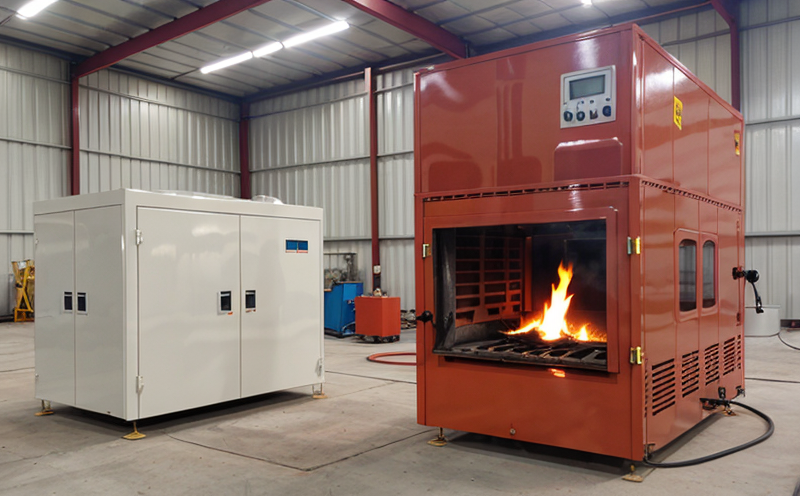ISO 11357-6 Oxidation Induction Temperature Testing
The ISO 11357-6 standard provides a method for determining the oxidation induction temperature (OIT) of metallic materials. This critical property is essential in understanding how metals react to oxygen at elevated temperatures, which is crucial for optimizing heat treatment processes and ensuring product quality.
The test involves subjecting a metal specimen to controlled heating rates until it reaches its OIT point. During this process, the specimen is exposed to an atmosphere containing oxygen (or another oxidizing agent). The temperature at which there is a significant increase in oxidation rate marks the OIT. This property is particularly important for materials used in high-temperature applications such as aerospace components, nuclear reactors, and exhaust systems.
The accuracy of this test can be significantly influenced by proper specimen preparation. Specimens must be free from contamination and prepared to ensure consistent mechanical properties across all samples. The testing apparatus typically includes a furnace capable of precise temperature control and an atmosphere control system to maintain the desired oxygen concentration.
Understanding OIT is vital for optimizing heat treatment processes, as it helps in determining the optimal heating temperatures that minimize oxidation while ensuring sufficient strength and ductility. This knowledge aids in the design and selection of materials suitable for specific applications, thereby contributing to the reliability and longevity of end products.
Applied Standards
| Standard Reference | Description |
|---|---|
| ISO 11357-6:2018 | Method for determining the oxidation induction temperature of metallic materials. |
| ASTM E946-15 | Standard test method for measuring oxidation resistance of metal by controlled rate heating. |
The ISO 11357-6 standard specifies the procedure, apparatus, and conditions necessary to accurately determine the OIT. It ensures that testing is conducted under consistent and reproducible conditions across different laboratories. This consistency is vital for comparing results between facilities and ensuring compliance with international standards.
ASTM E946-15 provides additional context on how oxidation resistance can be measured, complementing ISO 11357-6 by offering a broader perspective on the oxidation behavior of materials. Together, these standards form the foundation for reliable and reproducible testing in metallurgical labs worldwide.
Industry Applications
- Aerospace: Ensuring the integrity of turbine blades and other high-performance components.
- Nuclear: Evaluating materials used in reactor cores for resistance to oxidation under extreme conditions.
- Automotive: Optimizing exhaust systems and turbochargers made from heat-resistant alloys.
| Application | Description |
|---|---|
| Aerospace Components | Turbine blades and exhaust nozzles require materials that can withstand high temperatures without significant oxidation. |
| Exhaust Systems | Materials used in automotive exhaust systems must resist oxidation to ensure durability and performance. |
The OIT test is crucial for these industries as it helps in selecting materials that can endure harsh environmental conditions without compromising safety or functionality. By identifying the exact temperature at which significant oxidation begins, engineers can design components with optimal resistance to oxidation, thereby extending their service life and enhancing overall performance.
Eurolab Advantages
- State-of-the-art facilities: Equipped with advanced furnaces capable of precise temperature control.
- Expertise in metallurgy: Our team consists of highly experienced engineers and technicians specializing in material testing.
- Comprehensive reporting: Detailed reports that include all test parameters, specimen preparation procedures, and analysis results.
We offer ISO 11357-6 Oxidation Induction Temperature Testing services to ensure the highest standards of accuracy and reliability. Our facilities are equipped with cutting-edge equipment, allowing us to provide precise and consistent testing results. With a team of skilled professionals, we can handle even the most complex samples and conditions.
Our comprehensive reporting ensures that clients receive clear and detailed insights into their test results, facilitating informed decision-making. This service is essential for maintaining compliance with international standards and ensuring product quality in high-stakes industries.





